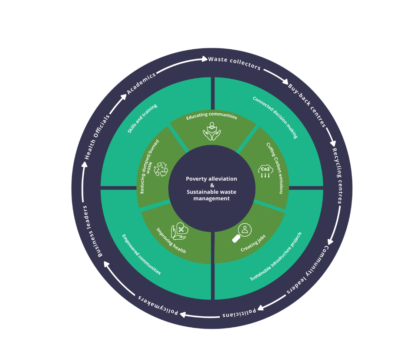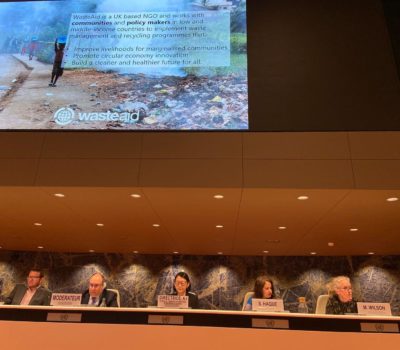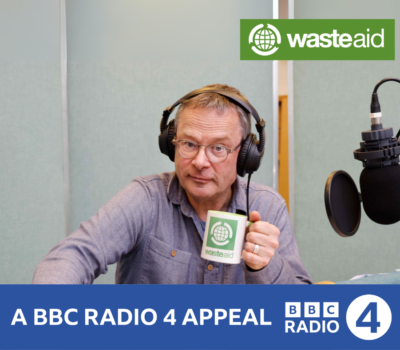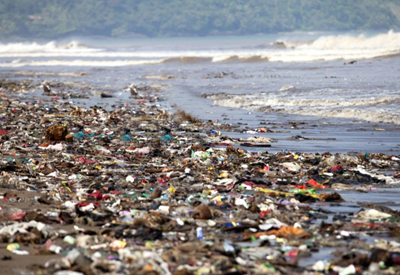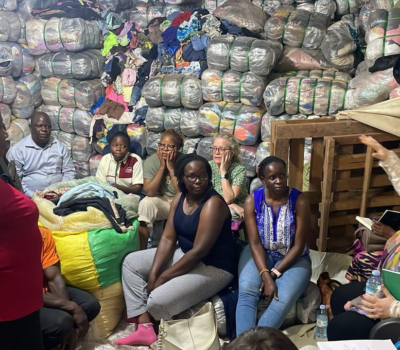The growing problem of e-waste should play a bigger role in the climate change debate
Thought Pieces
Author: Guest Author
Published: 23 June 2022
By Steve Oliver, Founder & CEO musicMagpie
With COP-26 fast approaching, much of the attention around the event has been centred on the key themes of ending coal power, phasing out polluting vehicles, making agriculture more sustainable, tackling deforestation and supporting developing countries with finance.
While these issues are of course absolutely critical, we here at musicMagpie would suggest that there are other glaring omissions and for us that is recycling and reuse. And, more specifically, the recycling and reuse of electronics and electronic waste, or “e-waste”.
E-waste refers to discarded electronic products with a battery or plug, such as computers and mobile phones. E-waste which isn’t recycled can end up in landfill and poses all kinds of environmental issues. Over time, the toxic chemicals inside our tech then seep into the earth’s soil and water. The chemicals released when tech is burned pollute the air, while the refrigerants found in temperature exchange equipment are greenhouse gases.
Failing to recycle e-waste also means the precious materials contained in tech products can’t be reused. This means more primary raw materials need to be extracted and refined, which leads to an increase in greenhouse gas emissions.
The UN estimates that 53 million tonnes of e-waste are generated globally every year, based on 2019’s figures. It expects this figure to double by 2050, making it the fastest-growing waste stream in the world.
However, it is an issue that simply doesn’t get the level of attention that it deserves, and consumer awareness is far lower than it should be: currently, in 2019, globally, only 17.4 per cent of electronic waste was officially documented as formally collected and recycled.
So, the scale and the urgency of the challenge here is huge. But the good news is that there are solutions and people need to be educated about the problem, then incentivised to act.
musicMagpie is just one small example of what can be done. Our circular economy model allows people to sell us their unwanted technology products. We then recycle and refurbish the product before selling it or renting it to someone else. 95% of the products we buy from our customers are refurbished and we use the parts from the remaining 5% to refurbish other items. In this way, nearly half a million consumer technology products per year are given a second life, and thousands of tonnes of gadgets are prevented from being disposed of in an environmentally unfriendly manner.
That’s not a bad starting point, but there is so much more to be done. Our research has found that in the UK alone, households are sitting on £16.5 billion of unused gadgets. Or to put it another way, every UK household estimates it has around £550 worth of consumer technology lying around that is rapidly depreciating. Furthermore, four in five people in the UK don’t know what e-waste is and, when given the definition of e-waste, nearly a third didn’t believe it damaged the environment or were unsure, while 45% weren’t even aware it impacted climate change.
As the largest recycler of consumer mobile phones in the UK, we’re proud to be playing our part – and our mantra is to be “smart for the consumer and smart for the planet”. We’re also delighted that our strong environmental credentials have been recognised by the London Stock Exchange, who recently awarded us with their Green Economy Mark – which recognises companies that derive 50 per cent or more of their total annual revenues from products and services that contribute to the global Green Economy.
But we are not complacent, and we are well aware that we are only just scratching the surface – both of the challenge and of the opportunity. Forbes recently estimated that the global re-commerce market is worth $24 billion and will rise to $51 billion by 2023 as consumers become increasingly aware of the impact on the environment and so seek to make more sustainable choices. We are certainly seeing this for ourselves, as the trends towards ethical shopping increase and people are more and more willing to buy refurbished products instead of new ones, whether that be for environmental concerns or simply to save money.
In fact, the circular economy is now a well-established consumer “mega-trend” as demonstrated by a number of retailers that have established specific “green” brands or recycling schemes for clothes and other household items.
But we still believe that the pace of change isn’t fast enough, and that more should be done to highlight the issue to consumers and on the global political stage. That’s why we created ‘Mount Recyclemore’ – a giant Mount Rushmore-style sculpture of the G7 leaders’ heads, made entirely of discarded electronics – and erected it on a beach near to Carbis Bay during the G7 summit earlier this year.
It came about following research from the Global E-waste Monitor which showed that G7 nations alone generated almost 15.9 million tonnes of e-waste a year in 2019, with the US (6.9m), Japan (2.6m), Germany (1.6m) and UK (1.6m) being the worst offenders. The campaign garnered worldwide media attention, and as part of it we were delighted to partner with WasteAid – donating £1 for each piece of consumer tech that was traded in during the month of June. In addition, sellers had the option to donate the value offered by us to the charity. After a brief stint outside our offices in Stockport, the sculpture now stands proudly at the Eden Project in Cornwall where it first met the G7 leaders.
Our hope is that it will turn heads, spark conversations and prompt people to take action. But in truth, meaningful progress will only be made if e-waste is part of the conversation along with the many other urgent topics that currently lead the climate change debate.
About the Author
Steve Oliver is CEO of musicMagpie, a leading re-commerce business in the UK and US specialising in refurbished consumer technology, which he co-founded in 2007 from his garage in Stockport, Greater Manchester.
Today, musicMagpie has an established presence in the UK, with operations in Stockport, Greater Manchester, and in the US in Atlanta, Georgia. Operating through its two trusted brands - musicMagpie in the UK and Decluttr in the US – the business’s core model is simple: to provide consumers with a smart, sustainable and trusted way to buy, rent and sell refurbished consumer technology and physical media products.
musicMagpie floated on London Stock Exchange’s AIM market in April 2021, with a valuation of £208m. On admission, the company received the London Stock Exchange’s Green Economy Mark, which recognises companies that derive over 50 percent of their total annual revenue from products and services that contribute to the global ‘Green Economy’. musicMagpie is the biggest ever global seller on eBay, the largest third-party seller on Amazon Marketplace, and employs approx 700 people.

